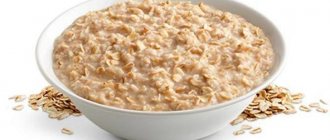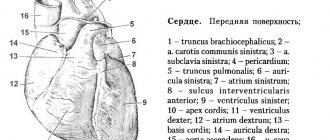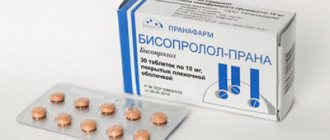With diabetes of any type, along with damage to the pancreas, malfunctions in the functioning of all body systems are observed. The dietary restrictions imposed on diabetics and the metabolic disruptions caused by the disease deprive the body of substances that ensure its normal functioning.
Timely prescribed vitamins for diabetics can slow down the destruction processes. Specially formulated vitamin complexes can compensate for vital substances that patients lack.
What do they have in common?
All complexes contain 3 groups of substances:
- B vitamins,
- vitamins - antioxidants,
- minerals and, above all, zinc, selenium and chromium.
We have already said that with diabetes, the walls of blood vessels thicken, molecules of cholesterol and fibrin stick to them, the lumen of the blood vessels decreases, and all organs and systems chronically “starve”.
This composition of vitamin complexes allows you to protect the nervous system of a diabetic in conditions of lack of nutrients and oxygen, improve metabolism, and bind free radicals that are formed in large quantities during oxygen deficiency.
The zinc contained in these complexes is necessary for the synthesis of insulin, and chromium is necessary for the normal functioning of the channels through which glucose passes into the cells. It works in conjunction with insulin and helps move glucose from the blood into the tissues.
Unfortunately, with type 2 diabetes, the body loses the ability to absorb chromium from food, so it must be supplied externally.
What multivitamin complexes can I take?
Every patient needs to find out from their doctor what vitamins can be taken for diabetes. Regular multivitamin complexes are often recommended, especially in the initial stages of the disease. But it is better to take medications in which all microelements are balanced and in the quantities necessary for a diabetic.
- "Complivit Diabetes" is a dietary supplement containing 12 vitamins, 4 minerals, lipoic acid, and ginkgo biloba extract. Improves metabolism, prevents peripheral circulation disorders, normalizes glucose levels.
- "Alphabet Diabetes" contains 13 vitamins, 9 minerals, organic acids, extracts of blueberries, burdock roots, and dandelion. The drug improves carbohydrate metabolism and prevents the development of complications.
- "Doppelgerts Active for Diabetics" consists of 10 vitamins, 4 minerals. Improves the patient's well-being, normalizes metabolic processes. The drug prevents kidney damage and eye diseases.
- "Vervag Pharma" contains 11 vitamins, chromium, zinc. The drug prevents vitamin deficiency, strengthens the immune system, and improves appetite.
Only a doctor can decide whether a patient needs vitamins and which ones are best to take. In most cases, special complexes are prescribed that help compensate for the lack of essential microelements.
Doppelhertz Active. Vitamins for diabetics
This complex contains all the B vitamins necessary for the normal functioning of the nervous system. There is a higher content of nicotinic acid compared to other vitamins, which helps normalize cholesterol metabolism and dilate blood vessels.
This complex also includes vitamin E.
True, its amount is very small: 42 mg = 63 IU.
(For comparison: the Aevit complex contains 100 IU).
In addition, this product contains large quantities of folic acid (vitamin B9), necessary for the synthesis of nucleic acids and proteins, tissue regeneration, and biotin (vitamin H), which also stimulates regeneration processes and, in addition, increases cell sensitivity to insulin .
In addition to vitamins, this complex contains microelements - zinc, chromium, selenium, magnesium.
Of these, the first two are involved in carbohydrate metabolism: zinc is necessary for the synthesis of the insulin molecule, and chromium reduces cravings for sweets.
Moreover, this complex contains the most chromium compared to other vitamins for diabetics.
Well, selenium is one of the most powerful natural antioxidants that are so necessary for diabetes.
When to recommend Doppelhertz Vitamins for diabetics?
This complex is suitable for any stage of diabetes: both with and without complications.
We recommend it:
- If you purchase glucose-lowering drugs.
- Diabetics with dry and damaged skin.
- If a diabetic asks for something that reduces sugar cravings.
Take 1 tablet 1 time per day.
Vitamins for diabetics: benefits and harms, daily dosage
To prevent and treat hypovitaminosis, patients with diabetes are prescribed vitamin and mineral complexes. Vitamins for diabetics also help improve their general condition and prevent complications.
Why Diabetics Need Increased Intake of Vitamins and Minerals
The need for diabetics to take vitamins is explained by an increased urge to urinate due to increased glucose levels. As a result, all useful substances, macro- and microelements are washed out of the body along with urine. Their deficiency must be replenished.
In addition, mineral complexes are prescribed if a person with diabetes does not eat properly and does not maintain the necessary balance of nutrients.
Vitamin deficiency leads to a deterioration in general condition and dangerous consequences. The use of vitamin-mineral complexes helps prevent the development of complications such as diabetic neuropathy, impotence, and retinopathy.
How to determine vitamin deficiency
Signs indicating a lack of vitamins in the body:
Symptoms of vitamin deficiency in the human body.
- A strong feeling of drowsiness, the person constantly wants to lie down.
- Increased irritability and aggression.
- Decreased concentration.
- Excessive dryness of the skin, the appearance of pigment spots on it.
- Deterioration of the condition of the hair and nail plate: hair becomes dull, split ends appear, nails break even from slight stress.
In the absence of timely treatment, the condition of a diabetic worsens.
Vitamins and minerals for diabetes
Vitamin complexes, when properly selected, followed in the regimen and dosage, are beneficial for the body.
Benefits and harms
Each of the vitamins and mineral elements has a positive effect on the body:
Benefits of magnesium for people with diabetes.
- Magnesium has a positive effect on the central nervous system, eliminates excessive irritability and nervousness, improves general condition, normalizes the functioning of the heart muscle and vascular system, and prevents changes in blood pressure.
- Manganese - activates the production of enzymes that are directly involved in the synthesis of insulin, reduces the risk of liver steatosis.
- Chromium picolinate - normalizes appetite, eliminates cravings for sweets or starchy foods, which diabetics should not consume.
- Alpha lipoic acid - prevents the development of diabetic neuropathy. In men, it prevents problems with potency.
- A and E - are necessary to maintain the normal condition and functioning of the eyes. Cataracts and glaucoma are diseases that often occur in people with diabetes; the risk of occurrence can be reduced by consuming these vitamins.
- C - strengthens the walls of blood vessels.
- H - relieves insulin dependence by reducing the need of soft tissue cells for this substance.
- B1 - regulates carbohydrate metabolism in the tissues of the nervous system. Normalizes the functioning of neurons, prevents dysfunction of the vascular system.
- Succinic acid stimulates the active synthesis of insulin and helps lower the concentration of glucose in the blood.
- B6 - takes an active part in protein metabolism.
- B12 - takes part in hematopoiesis, synthesis of nerve cell membranes, prevents the occurrence of fatty liver degeneration. Due to folic acid deficiency, many biochemical processes are disrupted in the diabetic body.
Vitamins can harm a diabetic's body if taken in excessive amounts. When they accumulate in the body, hypervitaminosis occurs, accompanied by intense side effects.
An overdose is accompanied by symptoms such as nausea and vomiting, increased aggression, lethargy, anxiety, and signs of intestinal distress.
An overdose of each vitamin has its own clinical manifestations:
- A - the formation of extensive edema, hair fragility and active hair loss, disturbances in the functioning of the pancreas and liver.
- B1 - allergic reactions, tremor, fever, accompanied by an increase in body temperature.
- B6 - allergic manifestations on the skin, feeling of chills and trembling.
- B12 - pulmonary edema, development of heart failure.
- D - changes in bone tissue at the structural level, dysfunction of internal organs.
- E - diarrhea, severe headaches, migraines. If a diabetic is a smoker, a stroke may occur due to an overdose.
- K - redness of the skin, excessive sweating.
The first signs of an overdose are an indication to immediately stop taking the vitamin preparation.
Daily human need for vitamins.
Daily norm
Each vitamin has its own daily requirement:
- Retinol - 900 mcg.
- Thiamine B1 - 1.5 mg.
- Riboflavin (vitamin B2) - 1.8 mg.
- Nicotinic acid - 20 mg.
- Tocopherol (vitamin E) – 15 units.
- Lipoic acid - 30 mg.
- Biotin (B7) – 50 mg.
- Pyridoxine (B6) - 2 mg.
- Ascorbic acid - 90 mg.
If the dosage is not exceeded, these vitamins will help maintain normal well-being in diabetic patients.
How to use
If there are no special instructions in the instructions, vitamins should be taken once a day, 1 capsule or tablet after meals. It is recommended to do this in the first half of the day. Duration of therapy is 1 month. Number of courses per year - 2.
Basic requirements for vitamins for patients with diabetes
Preparations for diabetics must contain B vitamins and substances with antioxidant effects, minerals: zinc, chromium and selenium.
Pharmacy vitamin complexes
Pharmacies offer many different vitamin and mineral complexes. They should be selected according to the doctor’s recommendations, taking into account the type of pathology.
For type 1 diabetics
Doppelhertz Active is a complex that contains B vitamins. These substances have a positive effect on the condition and functioning of the central nervous system. A distinctive feature of the complex is the high content of nicotinic acid, which normalizes the process of cholesterol metabolism and has a dilating effect on blood vessels.
Main components included:
- Vitamin E, but its concentration is low - 42 mg.
- Vitamin B12 is involved in hematopoiesis.
- Vitamin H, or biotin, activates regeneration processes, thereby increasing the degree of cell sensitivity to insulin.
- Zinc and chromium take an active part in the process of carbohydrate metabolism. Zinc synthesizes insulin molecules. Chromium reduces a diabetic's cravings for sweets and starchy foods.
- Selenium is a powerful antioxidant.
Doppelhertz Active is recommended for use if a diabetic is taking medications to lower blood sugar levels, as well as with excessive dryness of the epidermis with severe peeling.
Dosage - 1 tablet per day. The course is selected individually depending on the stage of the disease, the presence or absence of complications. A package of tablets costs from 400 to 700 rubles.
Complivit Diabetes is a Russian complex. The drug contains the following components:
Complivit Diabet is indicated for use in case of diabetic damage to the central nervous system.
- Vitamins B, E, ascorbic, folic and nicotinic acids.
- Microelements: zinc, magnesium and chromium, selenium.
- Ginkgo extract has a positive effect on the condition and functioning of the brain. The dosage in the complex is 16 mg.
Indications for the use of Complivit are smoking, taking antihyperglycemic drugs, diabetic lesions of the central nervous system, and the presence of excess body weight. Take 1 tablet once a day. Cost - about 250 rubles.
The Alphabet Diabetes complex consists of several types of tablets that differ in the quantity and combination of useful substances. Compound:
- All the essential minerals for a diabetic's body, including iodine, calcium, manganese and iron. These substances are present in small dosages.
- Extracts of dandelion, blueberry and burdock activate the process of producing endogenous insulin, thereby reducing the concentration of insulin in the blood.
Alphabet Diabetes is suitable for elderly diabetics with eye diseases, in the absence of obesity. The disadvantage of the drug is the inconvenience of taking it. You need to take 3 different tablets a day.
Elderly diabetics may have difficulty with this method of administration due to forgetfulness or incorrect alternation of different types of tablets. Price - 350 rub.
Glucose modulators from Solgar are distinguished by a relatively low concentration of beneficial vitamins and minerals.
Features of the composition:
- Niacin and pantothenic acid take an active part in the process of carbohydrate metabolism and increase the degree of glucose consumption by cells.
- Chinese bitter melon, green tea and fenugreek (extracts) promote the natural production of insulin, normalize fat metabolism, and have an accelerating effect on carbohydrate metabolism.
- Insulin is a ballast component; it is poorly digested in the digestive system, just as the sorbent absorbs a large amount of glucose, due to which it is not so actively absorbed into the blood.
Indications for taking the complex: the initial stages of diabetes with a slight increase in blood glucose levels, taking medications to lower sugar (increases their effectiveness). Cost - 2000 rubles.
Vitamins for diabetics from the German company Varvag Pharma contain all B vitamins, and the mineral elements include zinc, selenium and biotin, but their concentration in tablets is low.
The advantage of the complex for type 1 diabetics is the presence of a provitamin, which reduces the likelihood of an overdose of vitamin A, which is often observed when taking such drugs.
The drug has 2 types of packages: 30 and 90 tablets, this amount is enough for a one- or three-month course. The disadvantage is the lack of nicotinic acid, which regulates vascular tone. It also does not contain lipoic acid, which is a powerful antioxidant. This drug is recommended for diabetics with central nervous system disorders. Price - about 700 rubles.
For type 2 diabetics
The best vitamin complexes for a disease such as type 2 diabetes are:
For people suffering from type 2 diabetes, it is recommended to take vitamin A tablets.
- A drug containing a combination of zinc and magnesium. Improves insulin absorption. Magnesium has a positive effect on the condition of the heart and blood vessels. And the combination of elements normalizes the functioning of the central nervous system. The daily dosage is 1000 mg.
- Vitamin A tablets. Diabetic patients in most cases have problems with their vision. To reduce the risk of cataracts and glaucoma, it is recommended to take retinol; it is sold in pharmacies in tablet form.
- A complex of vitamin A, ascorbic acid and vitamin T. This combination has a powerful antioxidant effect, which improves the general condition of the patient.
- Vitamin B complex. The combination of B6 and B12 helps normalize metabolic processes and helps the body absorb insulin more easily and quickly. Vitamin B in tablet form helps restore the suppressed immune system and prevent disturbances in the functioning of NS cells.
- Oljim. The composition contains mineral elements necessary to maintain the normal condition of a diabetic. You need to take Oljim 1 capsule per day. The course of treatment varies depending on the severity of the disease - from 3 to 4 months. The cost of the drug is from 280 to 300 rubles.
- Complexes with chromium. Chromium is an extremely useful and necessary substance for type 2 pathology. Lack of the element is one of the main reasons for a diabetic’s irresistible craving for sweets and starchy foods. Chromium deficiency leads to increased insulin dependence. The optimal complex is with chromium and zinc.
The Oligim vitamin complex is recommended for use in diabetes.
Another complex recommended by doctors is Refer. The composition contains an optimal set of B vitamins and mineral elements (zinc, selenium), dandelion, burdock and bean extracts for diabetics.
The drug has a complex effect:
- restores impaired metabolic processes;
- normalizes the digestion process of carbohydrates;
- has a strengthening effect on the walls of blood vessels;
- regulates metabolism;
- protects cells from damage by free radicals.
Dosage - 1 tablet per day. To enhance the therapeutic effect, the drug is recommended to be combined with other complexes, for example Magnesium B6, including magnesium (470 mg) and pyridoxine (5 mg). The cost of the drug is about 450 rubles. for 30 tablets.
Considering the relatively high price, this remedy is not in great demand among patients. But those people who completed the course note an improvement in their well-being.
Criterias of choice
Before purchasing any complexes, you should consult your doctor.
You need to know exactly what substances are missing in the body so that their excessive amounts do not lead to an overdose.
An effective drug must contain:
- magnesium and chromium picolinate;
- lipoic acid;
- vitamins A, E, C, H.
These substances are the most important for diabetics. They regulate processes in the body that are disrupted in this disease. You should choose a good, balanced complex that will help in the fight against the main signs and complications of diabetes. Exceeding the concentration of nutrients in the body can lead to serious consequences.
Recommendations from experts
In order for vitamin supplements to give a positive result and improve the condition of a patient with diabetes, doctors recommend following a proper diet and taking sugar-lowering medications.
Don't forget about the need to lead an active lifestyle. It is important to give up such a bad habit as smoking.
If the selected complex does not give a positive result within 2-3 weeks, it needs to be replaced.
Source: https://Vitaminoved.ru/kakie-vitaminy-mozhno-pit-pri-saharnom-diabete
Doppelhertz Active. OphthalmoDiabetoVit
OphthalmoDiabetoVit's composition is fundamentally different from classic vitamins for diabetics. It is more like vitamins for vision.
This is the only vitamin complex for diabetics that contains zeaxanthin and lutein. They are necessary for the normal functioning of the organ of vision, reduce the need for oxygen in the optic nerve, and participate in the synthesis of visual pigments.
There is less vitamin E (tocopherol) here than in the previous one, but there is vitamin A, which enhances the antioxidant properties of tocopherol. Vitamin A is also necessary for the normal functioning of the visual analyzer and the prevention of retinopathy.
But it is important to remember that these are fat-soluble vitamins, and unlike water-soluble ones, they take a very long time to be eliminated from the body.
Therefore, it is better not to take this vitamin complex for more than two months without a doctor’s recommendation, since there is a risk of accumulation and toxic effects of vitamin A.
The undoubted advantage of these vitamins is their powerful antioxidant activity and ability to improve regenerative processes in the eye.
Of the water-soluble vitamins, there is a small amount of ascorbic acid and thiamine (vitamin B1). The first plays the role of an antioxidant, the second is necessary for the normal functioning of the nervous system.
It also contains trace elements - selenium, zinc, chromium. We have already talked about their role. But their content here is significantly lower than in classic vitamins.
In addition, this complex contains lipoic acid, which normalizes carbohydrate metabolism.
When to recommend OftalmoDiabetoVit?
- For diabetic retinopathy. For example, if an elderly person purchases eye drops such as Taufon or Emoxipin, ask if he has diabetes so that you can offer OftalmoDiabetoVit in combination with them.
- Overweight people who ask for recommendations for eye vitamins.
- Customers who purchase hypoglycemic agents and ask for eye vitamins.
Take 1 tablet 1 time per day.
Vitamins for type 1 diabetes list
People with diabetes, like no other, are susceptible to diseases of the organs of vision, they are more likely to have problems with nerve conduction and develop poorly healing wounds. To help the body and delay the occurrence of serious complications, you can take special vitamin complexes or certain vitamins for diabetics and minerals.
The necessary vitamins are: B1, B6, B7, B12, A, C, E, as well as some trace elements. In diabetes mellitus, they are washed out of the body faster or are initially poorly absorbed, which leads to various diseases.
The benefits of vitamins for diabetes
Most people believe that vitamins must be obtained from fruits and vegetables. But diabetics need to adhere to a diet that does not include all the necessary products.
Also, not everyone can perfectly compensate for diabetes, so additional methods are needed to prevent the development of diabetic complications.
Then you should resort to taking synthetic vitamin complexes that are created specifically for people living with diabetes.
Essential vitamins for diabetics
Before purchasing vitamins, you need to study information about them. You should find out which ones help and why, whether they affect sugar levels and whether they will be useless. Then it will be clear which is better to buy - a complex or individual types.
B vitamins
Diabetics most often experience polyneuropathy, which means loss of sensation in the arms and legs, especially the fingers. To improve the situation or prevent it, special drugs are taken - neuroprotectors.
Thiamine ( B1) is additionally taken for diabetes, when gastrointestinal diseases manifest themselves due to deterioration of its absorption, which entails a violation of carbohydrate metabolism.
For people with type 2 diabetes, it is better to use a fat-soluble analogue of thiamine - benfotiamine , it is more compatible with other substances and vitamins.
It is involved in nervous regulation and conduction of nerve impulses, improves glucose absorption, and normalizes the functions of the cardiovascular system.
Its greatest content in the human body is found in the brain, liver, heart, kidneys and skeletal muscles.
Pyridoxine ( B6) is responsible for the metabolism of proteins and the synthesis of special mediators necessary for the use of iron in the creation of hemoglobin. The need for it increases in diabetics, because they take more proteins. Used as an aid for diseases of the nervous system and skin.
Cyanocobalamin ( B12). This vitamin is prescribed as a preventive measure for diabetics taking biguanides (metformin), since its use is associated with B12 deficiency, which entails anemia, nerve damage, memory impairment and loss of strength.
Biotin ( B7 or H) has some insulin-like effects and may slightly lower blood glucose levels. In diabetes, there is a deficiency of this vitamin. It is involved in the production of a special enzyme (glucokinase), which regulates carbohydrate metabolism.
Vitamin A
Two of its salts are used in medicine - acetate and palmitate. Their difference is that they are salts of different acids, but the second type is closer to the human body. They are always produced in oil solutions (either in bottles or enclosed in capsules), since retinol is fat-soluble.
One of the known properties of vitamin A is its positive effect on vision. It participates in the formation of special pigments that are necessary for the normal functioning of vision in the twilight, that is, it contributes to a person’s adaptation to darkness.
It has a general strengthening effect on the body and increases resistance to infections. Retinol destroys reactive oxygen species, which are formed in large quantities during diabetes. Its activity increases significantly if taken together with vitamins C and E.
Vitamin E
It can also be found under the name alpha-tocopherol acetate. It is one of the important antioxidants, fights free radicals, stopping their destructive effect on cells.
Vitamin C
This is the well-known ascorbic acid. In diabetics, its level in the body is significantly reduced, which is fraught with accelerated formation of cataracts and oxidative reactions directly in the lens of the eye. The vitamin is involved in metabolic processes, as well as:
- improves carbohydrate metabolism;
- regulates blood clotting;
- reduces vascular permeability, which allows the body to fight off infections;
- promotes the accumulation of glycogen in the liver.
Vitamins for eyes
A common complication of diabetes is diabetic retinopathy. This disease affects and damages the small vessels in the retina of the eyes, causing vision loss if diagnosed too late. To prevent this from happening, you need to visit the ophthalmologist’s office from time to time and follow his instructions.
The following drugs are used as adjuvant therapy:
- Strix. Its active ingredients are blueberry extract and beta-carotene concentrate. The tablets improve blood supply to the retina, stimulate the synthesis of visual pigments, which allows you to see more clearly in the dark and increases visual acuity. Allowed for use from 7 years of age. Adults take 2 tablets a day, the course of treatment is a month.
- Vitrum vision forte. Contains: vitamins C, E, B2, betacarotene, lutein, selenium, zinc, blueberry extract. The components protect the eye tissue from the effects of free radicals, strengthen capillaries, and enhance visual acuity. The product is allowed from 12 years of age. Take 2 tablets per day, course duration is 3 months.
Useful microelements for diabetics
What is the difference between vitamins and microelements? The main difference is that the former are organic compounds (but in preparations have their synthetic analogues), and the latter are inorganic substances (for example, metals and non-metals).
Microelements are involved in many metabolic processes, improve the immune system, reduce the risk of infections, and even directly affect glucose and insulin, which is so important for diabetics.
Magnesium
Many people know that this element is used for problems with the nervous system. It is involved in the regulation of nerve impulses. Additionally, it reduces blood sugar levels and prevents the development of retinal dystrophy. The effect of magnesium enhances pyridoxine, it improves its absorption in the gastrointestinal tract and helps it penetrate cells more easily.
Its deficiency aggravates one of the mechanisms for the development of type 2 diabetes—insulin resistance.
It also reduces cravings for sweets, which makes it easier for overweight people to stick to their diet.
This element is very important for the skin. It is no secret that diabetics heal wounds and ulcers much worse, which is due to the fact that zinc leaves their body at an accelerated rate. In addition to influencing tissue regeneration, it is involved in the fight against infections, as it has a positive effect on the immune system.
It is quite common for people with diabetes to develop infected wounds that become slow to heal. Zinc supplements or foods rich in zinc can help prevent such complications.
Zinc plays an important role in the production, accumulation and release of its own insulin from pancreatic cells. The zinc-insulin complex is able to transport more glucose.
Selenium
Some scientists argue that the risk of developing type 2 diabetes is reduced in people who eat foods rich in selenium. It is one of the powerful antioxidants involved in the synthesis of an enzyme that protects the body from oxidative damage. The element has some antidiabetic properties.
Selenium deficiency is manifested by the development of cataracts, damage to the pancreas, kidneys and liver, and the risk of atherosclerosis increases.
Review of drugs
Modern medicine has created many complexes of vitamins and minerals, but not all of them can be used for diabetes. The following are the medications that are best suited for diabetes.
Doppelhertz Active
This is a German manufacturing company, its complexes are registered as dietary supplements, but they are in good standing with doctors. Many of their products do not contain bread units, which is stated directly on the packaging. And if they exist, then their quantity in 1 capsule is indicated.
Source: https://vitamingid.ru/articles/vitaminy-pri-diabete-1-tipa-spisok/
Vitamins for diabetics
The following vitamins, like the previous ones, come from Germany.
They are produced by the company Wörvag-pharma, known for its drugs “Milgamma”, “Magnerot”, “Ferrofolgamma”, etc.
This complex contains almost all B vitamins, some biotin, selenium and zinc.
Fat-soluble vitamins are represented by tocopherol and beta-carotene, that is, provitamin A.
The latter is an important advantage of this product. I already said above that fat-soluble vitamins accumulate in the body, and there is a risk of overdose and toxic effects of vitamin A, while it is one of the most powerful antioxidants, and therefore necessary for diabetics.
There is no such danger in this complex, since the body converts the beta-carotene included into it into vitamin A independently, depending on its needs.
From my point of view, this vitamin complex represents a kind of middle ground in terms of dosages of vitamins and microelements.
- We see the optimal content of vitamins in it.
- There is no danger of overdosing on vitamin A.
- It is conveniently taken: 1 time per day.
- It is available in 30 and 90 tablets, that is, you can purchase the complex for either a month or three at once.
- I will add to this German production and a reasonable price.
But I noticed two things:
- This complex does not contain nicotinic acid, which is necessary to regulate vascular tone and fat metabolism.
- There is no lipoic acid, which is an antioxidant and takes part in the regulation of fat and carbohydrate metabolism.
Who should we offer Vitamins for diabetics from Wörwag Pharma?
- First of all, people suffering from diabetic lesions of the nervous system. They complain of burning, tingling, pain in the arms/legs, decreased or complete loss of sensation in the feet or palms (do not forget to advise them to see a doctor in this case).
- For those who ask for cheaper vitamins for diabetes.
This complex should not be offered to persons with obvious disorders of fat metabolism. It is better to recommend a complex with lipoic acid.
Vitamins for type 1 diabetics with diabetes mellitus
With diabetes mellitus, the body's metabolic background changes. The use of minerals and vitamins is considered essential. Therapy for endocrinological diseases includes the use of multivitamin complexes.
Salts of microelements help reduce sugar levels and the amount of cholesterol in the blood. What vitamins and minerals are prescribed for use by type 1 diabetics?
The importance of vitamins and microelements in metabolic disorders
Pathological biochemical changes occur in the body of diabetics. Reasons why the patient needs additional organic substances and mineral components:
- when supplied with food, they are absorbed worse than in healthy people;
- with a deficiency, carbohydrate metabolism disorders are aggravated;
- The loss of water-soluble vitamins (groups B, C and PP) increases with decompensation of diabetes.
Of the fat-soluble ones, A and E are prescribed.
Diets for diabetics should include restrictions on the consumption of refined foods. It is necessary to supplement the diet for insulin-dependent patients from natural sources of vitamins that have been minimally processed.
| Vitamins | Products containing them |
| A | carrots, butter, cod liver, red pepper, tomatoes |
| Groups B | coarse bread, with bran, bread baked from fortified flour, legumes |
| E | vegetable oils (soybean, cottonseed), cereals |
| RR | meat, dairy products, fish, eggs |
| WITH | vegetables, fruits (citrus), herbs, herbs |
Insulin is synthesized in pancreatic cells. Potassium and calcium salts, copper and manganese take part in the complex process.
In type 1 diabetes, the cells of the endocrine system organ do not supply the hormone insulin into the blood or partially cope with their function.
As catalysts (accelerators) that increase the effectiveness of insulin and ensure the normal cycle of hormone production, chemical elements (vanadium, magnesium, chromium) are indicated for use in pharmaceutical preparations.
Daily intake of all necessary vitamins and microelements into the body is extremely important for the prevention of complications of diabetes mellitus
Combined vitamin and mineral complexes for diabetics
If there are no special instructions from the doctor, the drug is taken for a month, then a break is taken and the course of treatment is repeated. Type 1 diabetes can affect children and pregnant women who are in dire need of vitamins and minerals.
| No. | Drug name | Release form | Rules of application | Peculiarities |
| 1. | Berocca Ca+Mg | effervescent and film-coated tablets | Take 1-2 tablets with or without food, with plenty of water. | Suitable for chronic and oncological diseases |
| 2. | Vitrum, Polivit, Centrum | coated tablets | 1 tablet per day | long-term use in combination with other drugs of similar action is undesirable |
| 3. | Gendevi, Revit | dragee; coated tablets | 1-2 pieces after meals daily; 1 tablet three times a day before meals | prescribed during pregnancy and lactation |
| 4. | Gerovital | elixir | 1 tbsp 2 times a day before or during meals | contains 15% alcohol |
| 5. | Jungle | chewable tablets | 1 tablet up to 4 times a day (adults) | recommended for children |
| 6. | Duovit | tablets of different colors (red and blue) in blister packs | one red and one blue tablet each with breakfast | taking in high doses is not permissible |
| 7. | Kvadevit | pills | after meals, 1 tablet 3 times a day | contains amino acids, repeat the course after 3 months |
| 8. | Complivit | film-coated tablets | 1 tablet 2 times a day | after a month of taking it, a break of 3-5 months is taken, then the dose is reduced and the interval between courses increases |
| 9. | Magne B6 | coated tablets; solution for injection | 2 tablets with 1 glass of water; 1 ampoule 2-3 times a day | diarrhea and abdominal pain may be side effects |
| 10. | Makrovit, Evitol | lozenges | 2-3 lozenges per day | lozenges must be dissolved in the mouth |
| 11. | Pentovit | coated tablets | three times a day, 2-4 tablets | no contraindications identified |
| 12. | Pregnavit, Triovit | capsules | 1 capsule after meals with a little water | Pregnavit is approved for use by pregnant women, the dosage increases (up to 3 capsules) with the term |
There are no strict restrictions on taking Biovital and Kaltsinova for type 1 diabetics. Dosages are calculated in XE and summed with dietary carbohydrates taken for correct compensation with insulin.
Among the frequently encountered symptoms that accompany the use of vitamin-mineral complexes are allergic reactions to the drug and hypersensitivity to its individual components. The patient discusses questions about the dosage of the prescribed drug, side effects and contraindications for type 1 diabetics with the attending endocrinologist.
Last updated: April 6, 2020
Source: https://sosudy.info/vitaminy-saharnom-diabete-1-tipa
Complivit Diabetes
The next representative of this group is the Russian complex Complivit Diabet.
Contains almost all B vitamins, nicotinic, ascorbic, folic acids, vitamin E (150 IU).
Among the trace elements it contains chromium, magnesium, selenium and zinc.
There is also a small amount of lipoic acid.
Magnesium is included in the complex as a means that takes part in the regulation of vascular tone and improves the functioning of the nervous system. But there is very little of it.
Unlike other complexes, this one contains Ginkgo biloba extract. The substances included in its composition improve cerebral circulation.
Alphabet Diabetes
The next vitamin complex is Alphabet Diabetes.
As you remember, in these complexes all vitamins and minerals are collected in different tablets depending on their compatibility.
The main inconvenience of Alphabet is the need to take it three times a day.
And given that older people, especially diabetics, have memory problems, you can simply forget to do this. Or take the wrong pill.
The Alphabet Diabetes complex contains almost all microelements. It even contains manganese, iron, copper, iodine, and calcium.
Their dosages are very modest, with the exception of selenium, zinc and chromium, therefore they do not provide even the minimum daily requirement of the body for trace elements. Apparently, they are here in abundance.
Speaking of the vitamin component, what caught my eye was the inclusion of a complex of vitamins D and K, called phylloquinone.
They are responsible for calcium-phosphorus metabolism and blood clotting. What they are doing here is beyond me.
But there are also advantages:
The complex includes plant extracts that stimulate the release of endogenous insulin and thereby reduce blood glucose levels. These are extracts of blueberries, burdock, and dandelion.
Who should we recommend Alphabet Diabetes?
From my point of view, this complex is more suitable for older clients who do not suffer from complications of diabetes or have vision problems, given the presence of blueberry extract.
Vitamins D
Vitamin D (synonym: calciferol) is naturally produced in the human body when exposed to sunlight. In Central Europe, during the cold season (October to March), too little of the required UVR radiation reaches the Earth, so hypovitaminosis is very common.
Calciferol
Calciferol “strengthens” bones and reduces the risk of osteoporosis. Vitamin preparations of this group are used in the prevention of cancer and many other chronic diseases - multiple sclerosis, cardiovascular diseases and depression.
Studies have shown that diabetic patients who took 1,000 IU of calciferol and 600 mg of calcium per day as a dietary supplement had significantly lower blood glucose concentrations, inflammation, and better health.
New Zealand researchers found in another study in 2010 that calciferol could improve insulin resistance—but only if the dose of vitamin D was high enough and given over a longer period of time. The study looked at 4,000 IU of calciferol daily for six months.
Another study (2014) examined the effect of calciferol on HbA1c values. HbA1c is a value that characterizes the concentration of glucose over a long period of time. The research was carried out over two years. During this time, participants increased their calciferol intake from 25 ng/mL to 34 ng/mL, and HbA1c levels decreased markedly.
Hypovitaminosis D not only worsens the course of diabetes, but also causes diabetic complications of various etiologies. These include, in particular, vascular diseases - heart attack, stroke or others.
However, if the blood vessels are damaged, it causes circulatory problems in the relevant organs. Damage to the kidneys (nephropathy), nerves (neuropathy or polyneuropathy) and eyes (retinopathy) can result.
Neuropathy
Cardiovascular disease is more common in diabetes because calcium-cholesterol deposits (atherosclerosis) form in damaged blood vessels. Diabetics often have problems with blood clotting, which can lead to thrombosis in the long term.
People who, as studies show, took a lot of calciferol in the first year of life are half as likely to suffer from type 1 diabetes. Similar correlations were found when the mother had high calciferol levels during pregnancy. These children were less likely to have type 1 diabetes.
Solgar glucose modulators
Speaking about complexes for diabetics, it would be wrong to ignore the American product.
The content of vitamins and microelements in it is relatively small.
Niacin and pantothenic acid are participants in carbohydrate metabolism and increase the consumption of glucose by the cell.
Lipoic acid, chromium, magnesium and zinc do all the good things we talked about above.
In addition, the complex contains extracts of Chinese bitter melon, fenugreek, and green tea. They stimulate the natural production of insulin, normalizing fat metabolism, and speed up carbohydrate metabolism.
The composition includes inulin - a ballast substance that is poorly digested by the gastrointestinal tract. It has been proven that it absorbs a significant amount of dietary glucose and prevents its absorption into the blood.
Who should recommend Solgar “Glucose modulators”?
- Persons who are experiencing a slight increase in blood sugar for the first time.
- Persons purchasing glucose-lowering drugs to increase their effectiveness.
That's all for me.
Thank you, Anton!
Friends, let's sum up some results.
"Tips" of vitamins for diabetics
So, Doppelhertz Active Vitamins for diabetics is an excellent complex that is especially suitable for those who have skin problems due to diabetes (dryness, irritation, etc.).
Complivit Diabetes is fundamentally different from the previous one in the presence of lipoic acid, therefore it is optimal in case of excess weight.
Plus, it contains a plant component that improves blood supply to the brain (Ginkgo).
Doppelhertz OphthalmoDiabetoVit contains substances (zeaxanthin, lutein, retinol) that prevent complications from the organ of vision and improve its condition.
We offer it in case of vision problems. It also contains lipoic acid, so it is good for overweight.
Vitamins for diabetic patients from Vervag Pharma are interesting because they contain beta-carotene (safe provitamin A) and tocopherol, which means they have a more pronounced antioxidant effect. Therefore, they are especially indicated for long-term diabetes, possibly with existing complications.
The Diabet alphabet is different in that different minerals and vitamins are divided into different tablets so as not to reduce each other’s effects (in other complexes this issue is solved by a different production technology).
Alphabet Diabetes contains extracts of plants that lower blood sugar (burdock, dandelion) and protect the organ of vision from damage (blueberry).
Solgar Glucose Modulators contains lipoic acid, which is why it is especially suitable for those overweight, and herbal extracts that stimulate the production of your own insulin.
This is a good choice for newly diagnosed high blood sugar.
Recommended vitamin complexes
Alphabet diabetes
Dietary supplement made in Russia. Contains three types of tablets, the composition of each is selected so that the micronutrients contained in one tablet mutually enhance the effect of each other.
| Energy + | Antioxidants + | Chrome + |
| A | A | D |
| IN 1 | AT 2 | TO |
| WITH | AT 6 | AT 12 |
| Folic acid | WITH | Folic acid |
| succinic acid | E | Chromium |
| Lipoic acid | A nicotinic acid | Calcium |
| Iron | Zinc | |
| Copper | Iodine | |
| Blueberry shoot extract | Selenium | |
| Magnesium | ||
| Manganese | ||
| Burdock root extract | ||
| Dandelion root extract |
Each complex (energy+, antioxidants+ and chromium+) is taken once a day, for a total of 3 tablets. On the one hand, this, as planned, improves the digestibility of micronutrients and increases their effect. On the other hand, not everyone is comfortable taking pills three times a day, which reduces adherence to treatment.
The content of vitamins C, PP, B12, as well as zinc, exceeds the daily norm by approximately one and a half times (from 130 to 150%), B1 and E - two times, the content of manganese and chromium - three times, which allows you to compensate for the increased need for these micronutrients in patients with diabetes. Contraindicated in patients with hyperthyroidism due to iodine content, or in those suffering from gout due to calcium content.
Vitamins for diabetics
Dietary supplement produced in Germany.
Contains vitamins: A, B1, B2, B5, B6, B12, C, E, H (biotin), PP, folates, chromium, zinc.
The dosage of vitamin A is 2 times the daily norm, B6 - 3 times, B1 - 2.5 times, chromium - 4 times. The content of B5 and B12 is one and a half times lower than the daily norm, which vegetarians need to keep in mind, since they will not be able to compensate for the lack of these vitamins with the help of animal products.
Given the relatively high dose of vitamin A, it is recommended to consult an obstetrician-gynecologist before using it during pregnancy.
Doppelhertz active for diabetics
Dietary supplement produced by Queisser Pharma, Germany.
Contains vitamins: B2, B6, B12, C, E, biotin, nicotinic acid, folic acid, calcium pantothenate, chromium, selenium, magnesium, zinc.
The dosage of vitamins B1 and B6 is 2 times higher than the daily norm, folic acid is 2.5 times, C and biotin is 3 times, B12, E is 4 times; the remaining substances are in quantities sufficient to meet the daily requirement, but not exceeding it.
Contraindicated for children under 12 years of age, during pregnancy and lactation.










